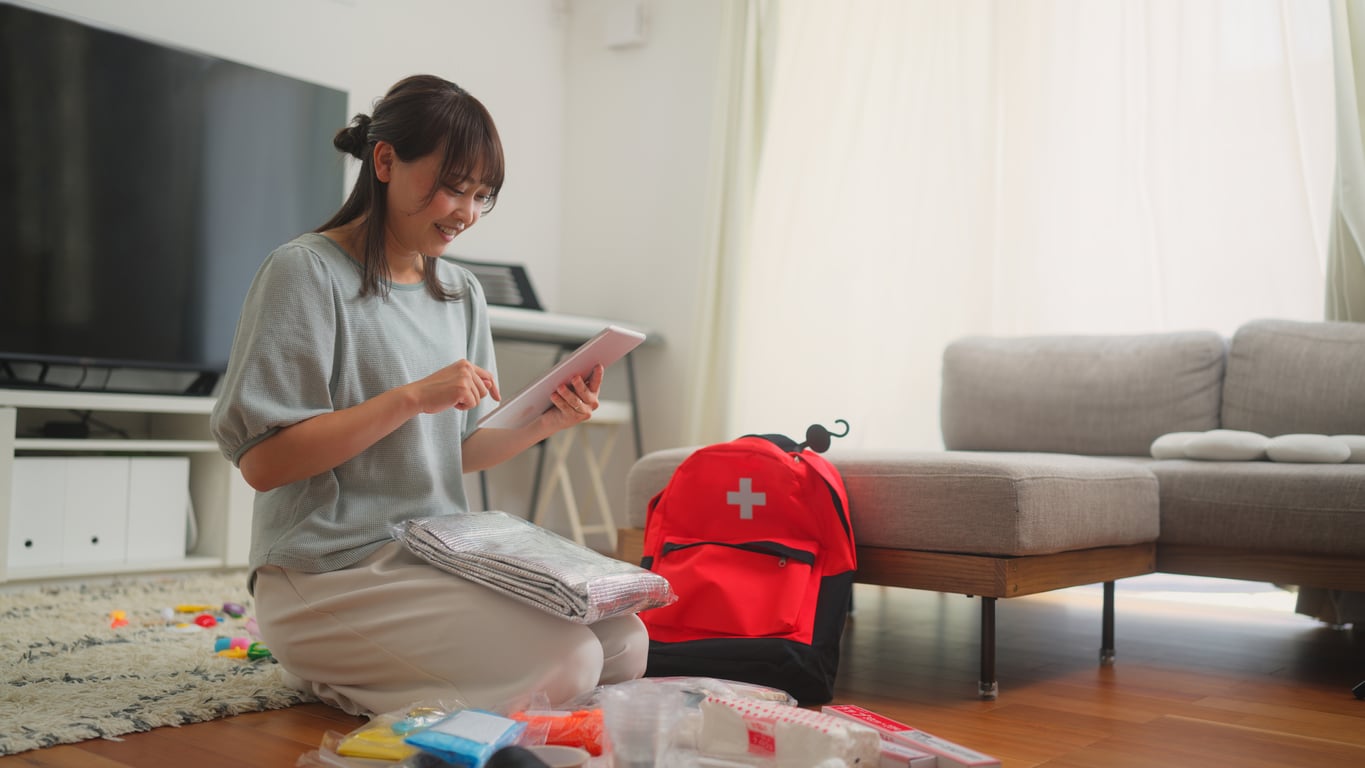While we hope we’ll never have to use them, emergency preparedness kits are essential for every home. Approximately 15% of U.S. adults report some degree of hearing loss. Hearing loss can complicate and add to your emergency needs, but there are ways to prepare for them ahead of time.
Packing a Hearing Loss-Friendly Emergency Kit

Every hearing loss-friendly emergency kit should come with the following items:
- Extra batteries. Always pack extra hearing aid batteries in your emergency kit, preferably in a waterproof case. During an emergency, first responders, alarms and family members will likely rely on auditory cues and warnings to ensure your safety. Storing extra hearing aid batteries will help you hear and respond to those calling out to you. Pack an extra charger and emergency power source if your devices use rechargeable batteries.
- Visual alarms. Many alarms rely on auditory cues. When hearing loss makes it challenging to understand auditory cues, especially at night when you are less likely to be wearing your hearing aids, visual alarms are of great help. Visual alarms usually rely on flashing lights to alert you to fires, burglaries and other emergencies. If you prefer an alternative to lights, look for alarms that vibrate to alert you to an emergency.
- Emergency beacon. An emergency beacon or flashlight is an excellent addition to any hearing loss emergency kit. The beacon emits a flashing light to alert others to your need for help.
- Identification. Make copies of your birth certificate and government identification and place them in a sealed, watertight lanyard. If your hearing loss is pronounced, make signs identifying yourself as deaf or hard of hearing, along with specific instructions detailing your needs. Documented information will help first responders care for your needs as seamlessly as possible.
Caring for Your Hearing Aids in an Emergency
Hearing aids are vital tools in any emergency. They help improve communication by locating and amplifying speech sounds and reducing irrelevant background noise. With all the benefits they provide, you’ll want to do all you can to keep them safe.
During an emergency, keep your hearing aids in your ears at all times to avoid loss or damage. Only remove your devices if they are likely to be damaged, such as from contact with heavy water. If you remove your hearing aids, place them immediately in a waterproof case kept on your person at all times.
For more information about preparing for emergencies with hearing loss, contact Hearing Center Silver Spring today to make an appointment with one of our specialists.